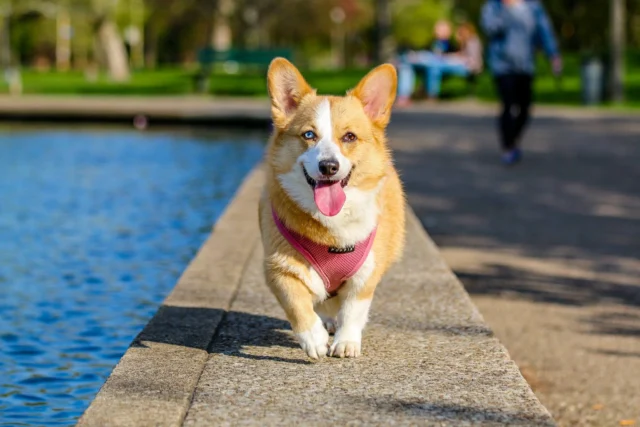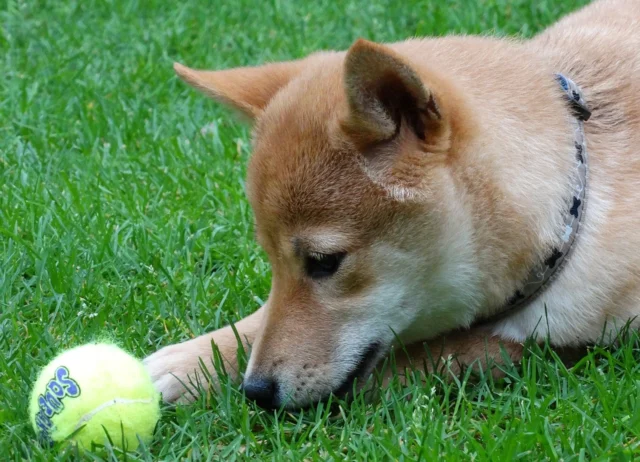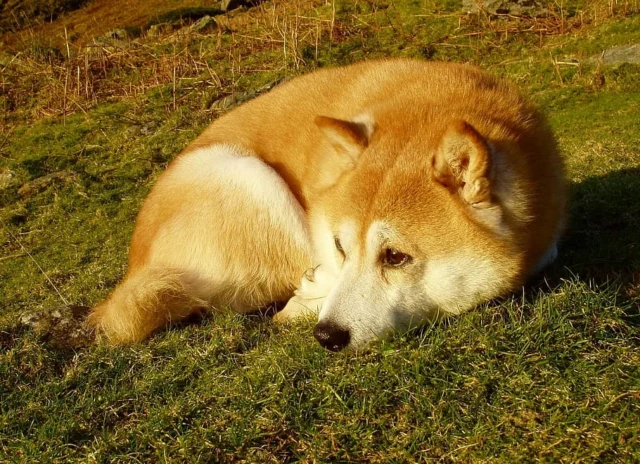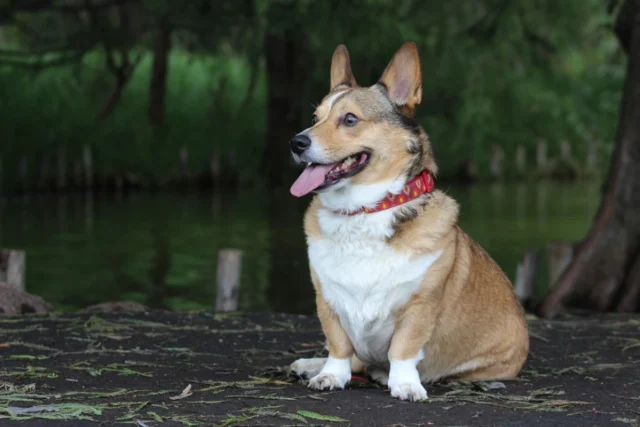In the world of charming canines, Corgis vs Shiba Inu stand out as two of the most beloved breeds. Both are incredibly popular among dog enthusiasts and for good reason. Corgis are known for their adorable short legs and fun-loving personalities, while Shiba Inus captivate with their fox-like appearance and independent nature. If you’re considering adding a furry friend to your family and are torn between these two breeds, you’ve come to the right place! In this article, we’ll dive deep into the corgi vs. Shiba inu comparison, covering various aspects to help you make an informed decision.

The Origin Story
Corgi: Royalty’s Companion
Corgis, with their distinctive appearance and spunky attitudes, have a royal history. Originating from Wales, these pups were once believed to be gifts from the fairies, and it’s easy to see why! The Pembroke Welsh Corgi and the Cardigan Welsh Corgi are two distinct breeds, both cherished by royalty throughout history.
Shiba Inu: Japan’s National Treasure
On the other side of the world, in Japan, the Shiba Inu has a profound cultural significance. Known as the “Little Brushwood Dog,” Shiba Inus were bred for hunting and have a legacy dating back thousands of years. Their fox-like appearance and spirited demeanor have made them a national treasure in Japan.
Appearance and Size
When it comes to physical attributes, Corgis vs Shiba Inus have unique features that set them apart.
Corgi: |
Shiba Inu: |
|
Height: 10 to 12 inches (25 to 30 cm) |
Height: 13.5 to 16.5 inches (34 to 42 cm) |
|
Weight: 25 to 30 pounds (11 to 14 kg) |
Weight: 17 to 23 pounds (8 to 10.5 kg) |
|
Body: Long and low-set with short legs |
Body: Compact and well-muscled |
|
Coat: Weather-resistant double coat, available in various colors |
Coat: Double coat, straight and stiff, with a soft undercoat, typically red, sesame, black and tan, or white |
|
Tail: Often docked (shortened) or naturally bobbed |
Tail: Thick and curled over the back |
In terms of appearance, Corgis boast an adorable, almost whimsical look, while Shiba Inus have an elegant and dignified presence.

Temperament and Personality Of Corgi Vs Shiba Inu
Corgi:
Corgi are known for their friendly and outgoing personalities. They thrive on social interactions and make excellent family pets. These dogs are loyal, intelligent, and have a strong herding instinct. Their playful nature makes them great companions for children, and they are generally easy to train.
Shiba Inu:
Shiba Inus are often described as independent and reserved. While they form strong bonds with their families, they can be aloof with strangers. They are clever, agile, and have a strong prey drive due to their hunting background. Training a Shiba Inu can be more challenging as they have a stubborn streak, but with patience and positive reinforcement, they can learn commands.
Exercise Needs
Corgi:
Corgis may have short legs, but they have plenty of energy to burn! Regular exercise is essential to keep these playful pooches happy and healthy. Daily walks, playtime, and mental stimulation are a must for this breed.
Shiba Inu:
Shiba Inus are active dogs that require daily exercise and mental challenges. They love exploring their surroundings, so a securely fenced yard is ideal. Engaging them in activities like obedience training, agility, and puzzle toys can keep them mentally stimulated.
Shiba Inu vs Corgi – Which Small Dog Breed Is Better for You?
Grooming Requirements
Corgi:
Corgis have a medium-length double coat, and shedding can be a significant factor. Regular brushing is necessary to manage their shedding and keep their coat looking neat. Additionally, occasional baths and nail trims are part of their grooming routine.
Shiba Inu:
Shiba Inus have a thick double coat that sheds heavily twice a year. They are relatively clean dogs and groom themselves like cats. However, they still require regular brushing and occasional baths.
Health Considerations
Corgi:
Corgis are generally healthy dogs, but they are prone to certain health issues such as hip dysplasia, degenerative myelopathy, and eye conditions. Regular veterinary check-ups and a balanced diet can help maintain their well-being.
Shiba Inu:
Shiba Inus are known for their robust health, but they may be susceptible to certain conditions like hip dysplasia, allergies, and patellar luxation. Regular exercise and a nutritious diet are essential to keep them in top shape.
Corgi vs. Shiba Inu: Which Is the Right Breed for You?
Corgis vs Shiba Inus are exceptional breeds with unique qualities. The decision between these two delightful pups depends on your lifestyle, activity level, and the time you can dedicate to training and companionship.
If you’re looking for an outgoing and affectionate family pet, the Corgi might be the perfect fit. On the other hand, if you prefer an independent yet devoted companion, the Shiba Inu could be your ideal match.
Ultimately, no matter which breed you choose, both Corgis and Shiba Inus will undoubtedly bring joy and love into your life.

Trainability and Intelligence
Corgi:
Corgis are highly intelligent dogs and are eager to learn new tricks and commands. They have a strong herding instinct, which can sometimes lead to nipping at heels, but with consistent and positive training methods, this behavior can be managed effectively.
Shiba Inu:
Shiba Inus are intelligent dogs too, but they also have a stubborn streak. Training them can be a bit challenging, as they may have an independent nature and prefer to do things their way. It’s essential to establish yourself as the pack leader and use positive reinforcement techniques during training.
Barking Tendencies
Corgi:
Corgis are vocal dogs and may bark to alert their owners or express excitement. Early socialization can help minimize excessive barking. However, their alertness makes them excellent watchdogs.
Shiba Inu:
Shiba Inus are known for their distinctive “Shiba scream,” which can resemble a high-pitched howl. They may not be as vocal as Corgis, but they do have a unique way of communicating their needs.
Adaptability to Living Spaces
Corgi:
Corgis are adaptable to various living environments, including apartments, as long as they get enough exercise. However, their energy level means they thrive better in homes with access to a yard.
Shiba Inu:
Shiba Inus are also adaptable to different living spaces, but they can be more independent and may not require as much attention as some other breeds. However, they still need regular exercise and mental stimulation.

Socialization and Behavior Around Strangers
Corgi:
Corgis are generally friendly and social dogs, making them welcoming to strangers. They enjoy meeting new people and other dogs, which can be attributed to their herding background.
Shiba Inu:
Shiba Inus can be reserved and aloof around strangers, which is a trait that aligns with their ancient hunting instincts. Proper socialization from an early age can help them become more comfortable around new faces.
Shedding and Allergies
Corgi:
Corgis are moderate to heavy shedders, especially during seasonal changes. While they do have a weather-resistant double coat, their shedding requires regular grooming to manage loose fur.
Shiba Inu:
Shiba Inus also shed quite a bit, particularly during shedding seasons. Regular brushing is essential to keep their coats in good condition and reduce loose fur around the house.
Lifespan
Corgi:
The average lifespan of a Corgi is between 12 to 15 years. With proper care and a healthy lifestyle, some Corgis can even live longer.
Shiba Inu:
The average lifespan of a Shiba Inu is between 12 to 15 years as well. Like any breed, their longevity depends on genetics and overall health.
Corgi vs. Shiba Inu: Making the Final Choice
As you’ve now explored the various aspects of Corgis vs Shiba Inus, you might be closer to making your decision. It’s essential to consider your lifestyle, time availability for training and exercise, and the specific traits that appeal to you the most.
If you’re looking for an affectionate and playful companion that enjoys socializing and has an unmistakable charm, the Corgi may be the right choice. On the other hand, if you prefer a more independent and regal canine with a dash of fox-like cunning, the Shiba Inu might be your perfect match.
Whichever breed you choose, providing a loving home, regular exercise, and proper care will ensure a happy and healthy bond between you and your new furry friend.
FAQs
Q1: Are Corgis good with kids?
Yes, Corgis are generally excellent with children. They have a playful and friendly nature, making them great companions for kids.
Q2: Do Shiba Inus get along well with other pets?
Shiba Inus can be reserved around other animals, especially those of the same sex. Early socialization can help them become more accepting of other pets.
Q3: Which breed is easier to train, Corgi or Shiba Inu?
Corgis tend to be more responsive to training due to their eager-to-please attitude. However, with patience and positive reinforcement, Shiba Inus can also become well-trained.
Q4: Do Corgis and Shiba Inus require a lot of exercise?
Yes, both breeds need regular exercise to keep them happy and healthy. Corgis may have more energy, while Shiba Inus require mental stimulation as well.
Q5: Are Corgis and Shiba Inus good with other pets?
Both Corgis and Shiba Inus can get along well with other pets, especially if they are socialized from an early age. However, proper introductions and supervision are essential.
Q6: Do Corgis and Shiba Inus require grooming?
Yes, both breeds require regular grooming to keep their coats healthy and free of mats and tangles.
Q7: Which breed is more suitable for first-time dog owners?
Corgis are generally more adaptable and easier to train, making them a good choice for first-time dog owners. However, with proper research and commitment, Shiba Inus can also be suitable for dedicated beginners.
Q8: Are Corgis and Shiba Inus good with children?
Yes, both breeds can be excellent companions for children. However, as with any dog, supervision is essential to ensure safe interactions between pets and kids.
Q9: Do Corgis and Shiba Inus have any specific health concerns to watch for?
Both breeds are generally healthy, but some breed-specific health issues can arise. Regular vet check-ups and a balanced diet are crucial to keeping them in optimal health.
Read also
- Indestructible Dog Toys: Keep Your Pup Entertained for Hours
- Discover the Best Dog Food for German Shepherd Puppy: Unveiling the Ultimate Guide!
- Best Dog Food for Shih Tzu With Allergies
- Hunting Dog First Aid Kit: Essential Supplies for Your Canine Companion
- Discover the Best Natural Dog Shampoo for a Happy and Healthy Pet
- Top 10 Best Large Dog Car Seats for Safe Travel in 2023
- Homemade Dog Food Recipe: Happy Tail-Wagging Guaranteed!
- Dog Food Storage Container: Keeping Your Pet’s Meals Fresh and Organized
- The Best Small Dog Car Seats for Safe and Comfortable Rides
- Best Dog Food for Husky: Unleash Their Health
- Choose the Best Dog Food for Your Picky Eaters Needs
- Best Dog Food for Pitbulls: Fueling Your Canine Athlete
- Types of Pitbulls: A Comprehensive Guide
- Discover the Enchanting Feist Dog Breed: A Blend of Tenacity and Intelligence
- Find the Best Dog Food for Your Huskies
- Best Dog Food for French Bulldogs: Secrets Revealed
- Best Dog First Aid Kit: Ensuring Your Canine Companion’s Safety and Well-being
- Best Anti Barking Device: Silence Your Dog’s Excessive Noise
- Best Dog Food for Puppies: Meeting the Nutritional Needs of Large Breeds
- Best Dog Food for Golden Retrievers: A Complete Guide

